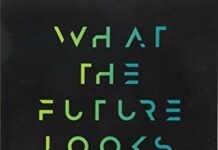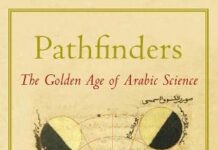
Ebook Info
- Published: 2012
- Number of pages: 352 pages
- Format: PDF
- File Size: 2.76 MB
- Authors: Jim Al-Khalili
Description
A myth-shattering view of the Islamic world’s myriad scientific innovations and the role they played in sparking the European Renaissance. Many of the innovations that we think of as hallmarks of Western science had their roots in the Arab world of the middle ages, a period when much of Western Christendom lay in intellectual darkness. Jim al- Khalili, a leading British-Iraqi physicist, resurrects this lost chapter of history, and given current East-West tensions, his book could not be timelier. With transporting detail, al-Khalili places readers in the hothouses of the Arabic Enlightenment, shows how they led to Europe’s cultural awakening, and poses the question: Why did the Islamic world enter its own dark age after such a dazzling flowering?
User’s Reviews
Editorial Reviews: About the Author Jim al-Khalili is a leading theoretical nuclear physicist, a trustee of the British Science Association, and a senior advisor to the British Council on science and technology. He has written a number of popular science books, which have been translated into thirteen languages so far.
Reviews from Amazon users which were colected at the time this book was published on the website:
⭐The author points out the real reasons for the decline of the Islamic world as the Mongol destruction of Baghdad, the rejection of the Gutenberg Press and today the fact that Islamic world universities have many mosques but no libraries on its campuses all of which is occurring now in the West with genocides and the Holocaust and Russian war crimes and the MAGA attack on science, education and books and on the other side mindless rejection of printing on demand which is the greatest advancement in publishing since the Gutenberg Press getting rid of expensive warehousing allowing everyone to be an author creating 100 percent efficiency in our collective knowledge where no book ever goes out of print disappearing like the lost works of the ancient world. It is the greatest history book of the 21st Century and a clarion call from the Islamic world to the West.
⭐Professor Jim Al-Khalili demonstrates with much conviction that contrary to popular belief, the birth of the modern scientific method did not occur during the European Renaissance, but in the Arabic world in the tenth and eleventh centuries. The modern scientific method relies on hard empirical evidence, experimentation, and testability of theories. Professor Al-Khalili uses the word “Arabic” rather than “Islamic” to differentiate “Arabic science” from Greek, Indian, and European Renaissance science. “Arabic science” refers to the science carried out by those scientists who lived in the Abbasid Empire, or who wrote their scientific texts in Arabic, the language of science in the medieval world.Professor Al-Khalili concentrates most of his attention on pure sciences such as astronomy, chemistry, mathematics, and medicine. In contrast to Western Europe until the early fifteenth century, the Arabic world progressively created the favorable conditions in which the great polymaths such as Ibn al-Haytham (Alhazen), Ibn Sina (Avicenna), al-Biruni, and Ibn Khaldun were able to rise to prominence. The Arabic world was host to dozens of thriving centers of excellence in science, not only in Baghdad, but also across North Africa and Spain and to the east in Persia and Central Asia.Professor Al-Khalili clearly explains that Spain became the main conduit for transferring the Arabic science to Western Europe in the wake of the Reconquista. The rebirth of European scholarship benefited greatly from the capture of Toledo, Cordoba, and Granada. This rebirth also found fertile ground first in Florence, and subsequently in the rest of Europe because of the favorable conditions existing in these locations.Professor Al-Khalili is at his weakest when he reviews the reasons behind the slow decline of Arabic science between the thirteenth and sixteenth centuries. The author rightly rejects the argument that the golden age of science in the Arabic world came to a sudden end with the fall of Baghdad to the Mongols in 1258. Science continued to flourish in other locations within the Arabic-speaking world after this event. In contrast, Professor Al-Khalili is clearly ambivalent about the rise of religious conservatism in the eleventh century that has inflicted lasting damage to the spirit of rationalism within the Arabic-speaking world to this day. Hiding behind the legacy of colonialism cannot erase the fact that there are undeniable tensions that still exist between science and religion in some parts of the Muslim world.To his credit, Professor Al-Khalili notes that some Muslim countries are investing in the infrastructure conducive to the further development of science. Both the volume and quality of scientific research in the Arab world have been negligible on a worldwide basis. At the same time, the author reminds Muslims and non-Muslims that what is even more important than money thrown at this poor showing is the political will to reform and to ensure real freedom of thinking.In summary, Professor Al-Khalili wants to sensitize Muslims and non-Muslims about the numerous contributions that the Arabic science made to the development of humanity during the Middle Ages. Hopefully, the Arab Spring will turn out to be a decisive catalyst to convince more Muslims that science is not the adversary of their spiritual beliefs.
⭐After reading James Hannam’s new book on the rise of science in Europe during the Middle Ages, The Genesis of Science, I could hardly resist reading Jim al-Khalili’s book on Arabic science during the same period, The House of Wisdom. In it, he makes the case that various scholars under Islamic rule did more than just preserve the wisdom of the ancients, but advanced it to the point that when Western Europe recovered this knowledge, it sparked the Renaissance. Much like Hannam, al-Khalili is partially successful.In many ways, al-Khalili had a better opportunity to impress me, as I have much less knowledge about Islamic science than I do about the history of Western science. And there is much here to impress. Al-Khalili clearly has an extensive knowledge of his subject and does a fairly good job getting it all out, considering how difficult it was for me to follow the barrage of unfamiliar names. Most interesting is his discussion of various discoveries like al-Khwarizmi’s development of algebra, Ibn Sahl’s discover of “Snell’s” law of refraction, or al-Razi’s work in medicine, to name but a very few.The problem is that al-Khalili tends to overstate his case and make illogical comparisons. He has a tendency to compare the work of Islamic scholars to more modern scientists (particularly Newton), and claim that their work is easily as original and important. I would rather drawn this type of conclusion myself based on what I learn of the actual work done and, frankly, I don’t think the comparisons usually stand up.He also uses personal anecdotes throughout the text, particularly from his youth in Iraq that I felt took away from what he was trying to accomplish. Granted, he’s trying to write for an audience that is less familiar with his culture as well as speak to the Muslim world to encourage a return to scientific achievement, but these digressions are distractions from the strength of his book–the history.Still, I’m very glad I read this book. I learned a tremendous amount and I gained a lot of respect for what Islamic scholars achieved during the Dark Ages of Western Europe. I’m even more glad I read this in conjunction with Hannam’s book. Covering the same time period and quite often the same people, they gave completely different perspectives on what lead to the scientific revolution. It is fascinating stuff.
⭐Jim Al-Khalili is a brilliant and gifted scientist and communicator. Indeed I regard his TV documentaries on a variety of scientific subjects to be outstanding. With regard Arabic science his own Middle Eastern background gives him a valuable perspective which is both refreshing and challenging, giving valuable insight into the scientific contribution that Islamic scholars contributed to the making of the modern world.But at the heart of this story is the issue of why after such a brilliant start it all faltered. In seeking to provide an explanation Jim Al-Khalili also falters.The watershed period seems to be the twelfth century. From a list of 72 great Islamic scholars provided almost half were from the two centuries immediately after the Arab conquests and only ten lived after the twelfth century. So why was this?The authoritative work of Nobel prizewinning physicist Steven Weinberg, in ‘To Explain the World; The Discovery of Modern Science’ leaves us in no doubt that the key figure is that of the theologian and philosopher al- Ghazali (born 1058) whom Jim Al-Khalili mentions only in passing. Understanding not only the man but the issue at the heart of the controversy which he represents is essential as it would also be replayed a century later in the universities of medieval Europe (particularly Paris and involving the clash between Thomas Aquinas and Bonaventure, Dominicans and Franciscans)but with a very different outcome, and consequently different future history.As Weinberg notes, the issue was over the possibility of a Natural Order: “Other religions, such as Christianity and Judaism, also admit the possibil;ity of mirtacles, departures from the natural order, but here we see that al-Ghazali denied the significance of any natural order whatsoever.” Al-Ghazali’s attack on science took the form of ‘occasionalism’ – the doctrine that whatever happens is a singular occasion, governed not by any laws of nature but directly by the will of God. And he went further, denouncing those who thought otherwise to be like alcoholics (also forbidden by Islam) with dangerous and pernicious minds.This hostility culminated in al-Ghazali’s famous denunciation in his Incoherence of the Philosophers. This was a full-on broadside against “The heretics of our times” who “have been deceived by the exaggerations made by the followers of these philosophers” (Socrates, Hippocrates, Plato, Aristotle, etc.), so that “their excellent intelligence justifies their bold attempts to discover the Hidden Things by deductive methods; and … they repudiated the authority of religious laws.” For al-Ghazali this was blasphemous, implying as it did restrictions to God’s omnipotence; for since God could do whatever he wanted, there was really no such thing as a ‘natural’ order. Neither was there any point in imagining the existence of ‘laws’ that needed investigating, for everything depended on the divine will. Such ‘consequentialism’ was devastating to the development of such concepts as natural order or scientific thinking. Purely scientific speculation was at best unnecessary.Such intolerance became the norm. One indication of the growing hostility to science came in 1013, when the fanatical Almoravids from North Africa (think Isis or Boko-Haram) destroyed the great library and palace at Medinat al-Zahra outside Cordoba, one of the greatest centres of Islamic scholarship. Later, in 1194 the ulama (religious scholars) of Cordoba, burned all the medical and scientific books they could find.In the very year books were being torched in Cordoba, jihadists at the other end of the Islamic world entered India under the direction of Sultan Muhammad of Ghor – celebrated as Jahanzos or ‘World Burner’ – where they systematically destroyed the greatest seat of learning in Asia, the Buddhist Mahavihara or ‘Great Monastery’ at Nalanda. It was burnt to the ground and contemporary observers reported that for a period of months the smoke from burning manuscripts hung like a pall over the low hills of Bengal. So much for learning that was not based on the Qur’an. In other words, whatever one may think of the concept of ‘Islamic science’, the evidence clearly shows that it was frustrated and ultimately overwhelmed by the zealots of Islam itself, which became increasingly intolerant of learning based on reason and empirical analysis: No voices or movements like those in Europe proved capable of challenging ‘orthodoxy’; and as a result Islam never progressed in its thinking as did the Christian culture of Europe, particularly after the sixteenth century.This evaluation of the consequences of al’Ghazali had been previously discussed by the celebrated French philosopher Etienne Gilson in his great work ‘The Unity of Philosophical Experience’ (1937) in which the implications of certain philosophical and theological assumptions are shown to be the same, regardless of time and place. Assumptions that religious fundamentalists of all faiths still make whilst trying to deny the consequences.
⭐I had always understood from my school history lessons that the boom in scientific knowledge came from the age of enlightenment, the Renaissance. This one book blows that idea right out of the water and fills in what happened for about 1500 years before that when the West was in the Dark Ages. Jim Al Khalili is a good writer and his words flow effortlessly off the page – a very easy read. I was left with the impression that our history lessons need to be updated to include this information. I was always left with a feeling that something was missing and now I know what it was. I cannot recommend this book highly enough.
⭐For all those of us who were taught the Renaissance began in Italy in the 15th Century, this is a must to read. It made me realize how much of history given to us in Europe and the West is intensely Eurocentric, with an emphasis that civilization as we understand it, began around the Mediterranean (Ancient Egypt and Greece). This book opens up a much wider view of the development of knowledge, which has shaped the world we know today.
⭐Not really a very well represented or historically accurate book. If I be honest it felt very biased for someone whom claims that they adopt secularism thus giving them an automatically a free pass to being non biased. Whom ever gave the green light to this book clearly has the wrong info on Islamic history and especially written by orientalists. My opinion a lot or incorrect info and faf in this book. An example I can provide is that the author called Abdul Hamid II a weak old man.
⭐This promises to be a fascinating Read,a follow up to Pathfinders,his previous book on the same subject.
Keywords
Free Download The House of Wisdom: How Arabic Science Saved Ancient Knowledge and Gave Us the Renaissance in PDF format
The House of Wisdom: How Arabic Science Saved Ancient Knowledge and Gave Us the Renaissance PDF Free Download
Download The House of Wisdom: How Arabic Science Saved Ancient Knowledge and Gave Us the Renaissance 2012 PDF Free
The House of Wisdom: How Arabic Science Saved Ancient Knowledge and Gave Us the Renaissance 2012 PDF Free Download
Download The House of Wisdom: How Arabic Science Saved Ancient Knowledge and Gave Us the Renaissance PDF
Free Download Ebook The House of Wisdom: How Arabic Science Saved Ancient Knowledge and Gave Us the Renaissance




